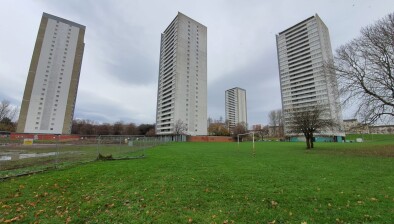Action for damages after man died falling through roof at work allowed to proceed

The widow of a man who died falling through a fragile roof while carrying out maintenance work has been allowed to proceeded to a hearing on the evidence after a dispute over the nature of his employment arose.
Victoria Rose, wife of the late Andrew Rose, and other members of her family averred that WNL Investments Ltd had failed to take reasonable care for his safety and had not maintained a safe system of work. The defender denied that Mr Rose was its employee and took the position that he was an independent contractor engaged by it.
The case was heard by Lord Sandison in the Outer House of the Court of Session. Milligan KC appeared for the pursuers and Shand KC for the defender.
Mixed question
Mr Rose was engaged by the defender to clean and paint the roofs and walls of buildings at the defender’s various premises throughout Scotland. On 9 June 2018, while working at premises owned by the defender, Mr Rose fell through a fragile roof and subsequently died. His family sued for damages in respect of his death, claiming that it was the result of fault and negligence at common law on the defender’s part.
It was accepted by the pursuers that Mr Rose had not been using any fall protection measures, despite knowing that he was working on a fragile roof, and that in 2017 the defender had asked Mr Rose to revise his risk assessments to make reference to additional safety precautions in the form of personal fall protection measures.
The defender sought dismissal of the action, arguing that the pursuers’ case was irrelevant and lacking in specification. It averred that Mr Rose was acting as an independent contractor, who had his own employees and had brought his own equipment to the defender’s premises. No facts had been averred relevant to instruct a case that a common law duty of care was owed to him.
On behalf of the pursuers, it was submitted that the action should be remitted for proof. The question of whether Mr Rose was an employee was a mixed question of fact and law which could only be resolved once all the evidence was heard. How the parties chose to characterise the relationship was not definitive, and even if he was not an employee, he might still be owed analogous duties on the basis that the defender had control of the site.
Not bound to fail
In his decision, Lord Sandison observed: “Many of the admitted features of Mr Rose’s engagement are, to put it mildly, not inherently supportive of the suggestion that he should properly be regarded as having been the defender’s employee for the purposes of this action. It does not appear to be in dispute that he was, at least generally, a self-employed contractor, engaged his own employees, and brought his own equipment to the defender’s premises.”
However, he went on to say: “On what has traditionally been regarded as a key issue, namely that of control, the pursuers do aver that ‘at all times whilst engaged by the defender, the defender retained control over the work being undertaken by the deceased, to the extent that they were able to monitor, supervise, insist upon and implement measures to prevent the deceased and his employees from falling from height and/or to minimise the distance and consequences of any such fall’.”
Addressing the effect of that averment, Lord Sandison said: “Whether that, either in isolation or in combination with whatever other matters of detail may emerge at proof in relation to the other relevant factors set out in the pleadings, will or will not result in a conclusion that Mr Rose falls for the purposes of this litigation to be regarded as having been an employee of the defender in connection with the work that led to his death, is not a question that can be answered in the abstract at this stage of proceedings, standing the authorities already noted. Put shortly and in familiar terms, it cannot be said at this stage that the pursuers are bound to fail on this issue.”
He concluded: “So long as [the pursuers’] claims are seen as propositions of fact rather than law, they are unobjectionable in light of the preceding analysis of the law. Whether they will in fact be made out as valid propositions of fact, and if so whether they will add anything to the process to be gone through by the judge considering what the common law requires in the precise situation which proof reveals to have pertained, remains to be seen. There is, however, no proper ground upon which they may be refused probation at this stage.”
The case therefore proceeded to disposal by way of proof, without any excision of the pursuers’ pleadings.






















